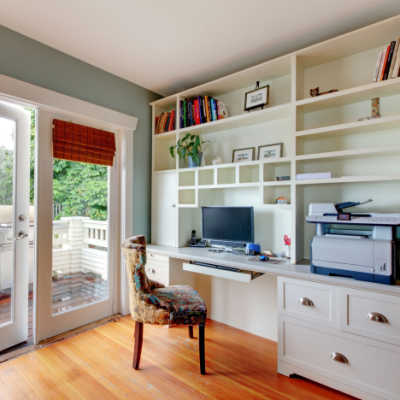What is a Renovation Loan?

A renovation mortgage loan can be used to finance the purchase of a home and the cost of renovating or improving the property. This type of loan is designed to help homeowners who want to buy a fixer-upper or renovate their existing home but don’t have the cash upfront to pay for the renovations.
If you are a Denver homeowner interested in selling, you may be caught in this “catch-22” situation. You want to move, but you feel that your hands are tied. Sam Wilson has the experience to help first-time home buyers or buyers and sellers on their way to multiple home purchases.
The Spring Selling Market in Denver Looks Promising
In this video by realtor Sam Wilson, let’s take a quick look at what’s happening in Denver real estate for the 2023 spring selling season. Market statistics are based on the Denver Metro Association of Realtors’March 2023 Report.
Check out more videos for home sellers and buyers on Sam’s YouTube Channel.
Following up on Sam’s mention of renovation loans in this video, the amount you receive from a renovation loan will depend on the lender, the type of loan, and the estimated cost of the renovations. In general, renovation loans are offered as a percentage of the home’s purchase price plus the estimated cost of renovations. Some renovation loans may have a maximum limit, while others may not.
When you buy a home using a renovation loan, the loan amount will be based on the combined value of the home and the estimated cost of the renovations. The money from a renovation loan can be used to pay for a wide range of home improvements, such as repairing or replacing the roof, updating the kitchen or bathrooms, adding a new room, installing new flooring or windows, and more.
How Do Renovation Loans Work?
To use a renovation loan when buying a home, you will typically need to work with a lender who offers this type of loan. The lender will assess the value of the home and the estimated cost of the renovations and then determine the loan amount and terms that work best for your situation. Once approved for the loan, you can use the funds to pay for the renovations and improvements to your new home.
Overall, a renovation loan can be a great way to finance the purchase of a fixer-upper or make significant improvements to your existing home. However, it is important to work with a reputable lender who can help you understand the terms and conditions of the loan and ensure that you are getting a fair and competitive interest rate.
To apply and qualify, there are several steps you can follow:
1 Research lenders – Look for lenders with experience in this type of loan who offer competitive interest rates and favorable terms.
2 Check eligibility requirements – Each lender may have different eligibility requirements for renovation mortgage loans. Check their website or speak to a loan officer to determine their requirements. Generally, you will need to have good credit, a stable income, and show that you have the financial means to repay the loan.
3 Get pre-approved – To get pre-approved for a renovation mortgage loan, you must provide documentation of your income, assets, and credit history. This will help the lender determine the amount you qualify for and the loan terms.
4 Estimate renovation costs – Determine the estimated costs of the renovations you want to make to the home. This can be done by getting quotes from contractors or by doing the calculations yourself.
5 Apply for the loan – Once you have been pre-approved and have estimated the cost of the renovations, you can formally apply for the loan. The lender will evaluate your application, including your credit score, income, and other financial information.
6 Close the loan – If approved for the renovation loan, you must sign a loan agreement and go through the closing process. This typically involves paying closing costs, such as appraisal and inspection fees, and signing a promissory note.
Qualifying for a renovation mortgage loan can be a bit more complicated than a traditional mortgage loan because the lender will also evaluate the cost and feasibility of the renovations. However, with careful planning and preparation, you can increase your chances of qualifying for a renovation mortgage loan and getting the funding you need to make your dream home a reality.
A Comparison of Conventional Mortgages Vs. a Renovation Mortgage
| Conventional Mortgage | Renovation Loan Mortgage | |
| Purpose | Purchase or Refinance of existing home | Purchase or Refinance of a home in need of renovations |
| Interest Rate | Fixed or Variable | Fixed or Variable |
| Approval Process | Credit score, income, employment history, debt-to-income ratio, property value | Credit score, income, employment history, debt-to-income ratio, property value, renovation plans |
| Loan Amount | Limited to property value | Based on property value plus estimated renovation costs |
| Disbursement of Funds | Lump sum at closing | Disbursed in stages as work is completed |
| Repayment Terms | 15-30 years | 15-30 years |
| Down Payment | As low as 3% | As low as 3% |
| Closing Costs | Typically 2-5% of the loan amount | Similar to a conventional loan |
| Eligible Properties | Single-family homes, townhomes, condos | Single-family homes, townhomes, condos, and multi-unit properties |
A Renovation Mortage May Help You Create the Home of Your Dreams
In summary, a conventional mortgage is used to purchase or refinance an existing home. In contrast, a renovation mortgage is used to finance the purchase or refinance of a home needing renovations. The approval process for a renovation mortgage includes credit score, income, employment history, debt-to-income ratio, property value, and renovation plans. In contrast, a conventional loan is based solely on property value.
Renovation mortgages allow borrowers to finance the cost of home improvements and repairs into their mortgage, with funds disbursed in stages as the work is completed. Conventional loans are typically lump sum at closing. Both types of loans have similar repayment terms of 15-30 years and require a down payment of as little as 3%. Closing costs are typically similar for both loans, ranging from 2-5% of the loan amount.
While conventional mortgages are typically used for single-family homes, townhomes, and condos, renovation mortgages can also be used for multi-unit properties.
Get a FREE List of Fixer-Uppers in the Denver Area from Sam Wilson, Realtor
Are you a savvy homebuyer looking for a property needing extra love and attention? Look no further! The Sam Wilson Home Selling team offers a FREE list of fixer-upper homes to turn into your dream home using a renovation mortgage loan.
These properties may need some work, but with our help, you can use a renovation mortgage loan to finance the property purchase and the renovation cost. This means you can make the home your own and customize it to your specifications without paying for all the renovations upfront.
Our team of experts will provide you with a comprehensive list of properties with great potential and need renovation. We’ll help you understand the estimated renovation costs, connect you with reputable contractors, and guide you through purchasing and renovating a fixer-upper home.
Don’t let the opportunity to own your dream home slip away! Contact us today to receive your FREE list of fixer-upper homes that can be yours with a renovation mortgage loan. We are committed to helping you find the perfect property and make it your own. Let us help you turn your renovation dreams into reality!
Now is the Time to Take Advantage of the Current Window of Opportunity in the Housing Market
Are you considering buying or selling a home in the Denver Metro Area? Get expert real estate advice from Sam Wilson, who has more than twenty years of experience in the local market.
If you are thinking of buying or selling a home, Sam will share years of expertise to make the home buying or selling process a financial win that is as stress-free as possible.
The Sam Wilson Home Selling Team specializes in homes in the Denver Metro area, including Arvada, Aspen Park, Aurora, Brighton, Broomfield, Centennial, Conifer, Denver, Edgewater, Evergreen, Genesee, Golden, Highlands Ranch, Idledale, Indian Hills, Ken Caryl, Kittredge, Lakeside, Lakewood, Littleton, Morrison, Mountain View, Parker, West Pleasant View, Westminster, and Wheat Ridge.
Contact Sam Wilson today
© 2023 Sam Wilson



